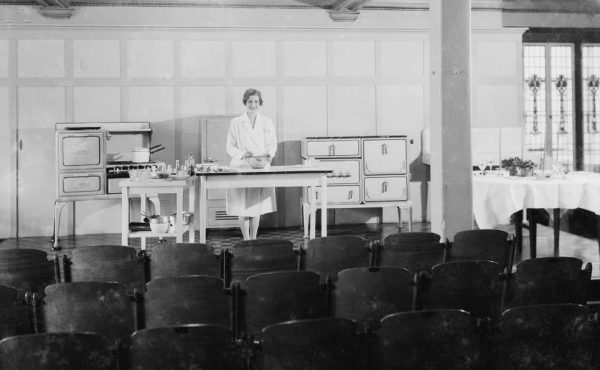

Did Mayor Rob Ford move the pigskin towards his end zone last week?
An average – which is to say marginally informed – voter might say the answer is an unequivocal, Yes! The headlines told us that garbage privatization, the Holy Grail of his mayoralty, is now a large step closer to reality. An Ipsos-Reid poll conducted for an association of waste haulers confirmed that 60% of Torontonians are untroubled by outsourcing. And the mayor’s personal popularity seems in tact, despite a looming (and politically inconvenient) investigation into whether his campaign organization broke both provincial and municipal election laws.
But a closer read of the results at council last week suggests the brothers Ford are second-and-15, if I may invoke yet another football metaphor. On several non-trivial motions – regarding waste management outsourcing, the future of community-based advisory councils, and the dumping of toxic chemicals into Lake Ontario – the Fords came out on the losing side of very close votes.
In several cases, which I’ll detail in a moment, they didn’t manage to whip some of their core cabinet ministers and the newbies who normally align with them.
Then there’s ongoing saga of the by-election in Ward 9. After Maria Augimeri’s lawyers announced she’d appeal the judicial ruling that found irregularities with the vote count, city clerk Ulli Watkiss reversed her reversal and declared the city would, in fact, launch an appeal – a gesture that brought a tongue-lashing from the mayor, who, as my colleague Marcus Gee remarked, has recklessly inserted himself into the thick of a legal process. Perhaps stung by earlier allegations that she’d caved to Ford’s pressure tactics, Watkiss seems to have decided to assert the independence of her office.
Let’s start with council.
As Spacing contributors Adam Chaleff-Freuddenthaler and Jonathan Goldsbie noted in their tweets, Michelle Berardinetti, a right-leaning Scarborough Liberal, was the deciding vote on a motion by Councillor Gord Perks to stop the practice of dumping chlorine from the Ashbridges Bay treatment plant into Lake Ontario. The 18-17 vote on Thursday afternoon reversed a recommendation from Denzil Minnan-Wong’s works committee that was supported by the mayor’s party.
The Fords’ bid to silence a bevy of citizen advisory committees that produce the wrong flavour of policy advice similarly turned out to be more difficult than originally envisioned.
A Mike Layton motion to protect the aboriginal affairs committee sailed through 27-15, with a long list of Ford loyalists (Gary Crawford, Frank di Giorgio, Chin Lee, Mary-Margaret McMahon, Peter Milczyn, James Pasternak, Jaye Robinson, Karen Stintz) siding with the dreaded socialist scion. Robinson’s motion to ask for more detailed staff analysis, due in July, on the usefulness of these committees seemed designed to save the mayor from imminent embarrassment. After all, most politicians like to maintain the pretence that they listen to all perspectives.
As for the garbage privatization file, the Fords’ tactic coming in to the meeting was to allow council, as opposed to the bid committee, award the tender. The move, he said in a speech which sounded like it was written during the Cold War, will force all the councillors to reveal whether or not they’re “socialists.”
The particular gambit worked, to the chagrin of CUPE officials. But a handful of successful motions by the Joshes Matlow and Colle are more than just lipstick on a pig. One of Colle’s motions, which passed by a large margin, is a request that the auditor-general “consider conducting a post-implementation audit of the awarded contracts that focuses on, but is not limited to, diversion targets achieved, customer service levels and cost savings.”
Jeff Griffiths is almost certain to agree, and his assessment will offer the final word on whether outsourcing saves money or if it’s mainly about busting the union. After all, the city’s waste management officials have muddied the policy waters by taking explicitly contradictory positions on this most political of questions. An objective answer would resolve the point for future councils and voters at large.
Colle also slipped in a motion asking bidders to reveal their plans to hire some of the 300 displaced city temp workers affected by this decision; it won 24-20 thanks to the support of a handful of councillors who normally vote with the brothers (Norm Kelly, Di Giorgio, Gloria Lindsay Luby, McMahon). With council voting on the final award, the bidders now have a strong incentive to ensure these individuals aren’t out on the street.
The most interesting one, however, was Josh Matlow’s motion to ban bids from Progressive Waste Solutions, which last month hired the city’s long-time waste management boss Geoff Rathbone, presumably to help the firm land this lucrative deal. That one passed 23-21, with the winning votes cast by Ron Moeser, James Pasternak and Caeser Palacio, three of the Fords’ most stalwart allies.
The significance of this motion shouldn’t be underestimated. While city lawyers insist council was within its rights to take such a step, Progressive officials are now saying the company may sue. Who’s surprised? The contract is a big money prize and there’s a promise of more to come. Progressive, which clearly wants a long-term relationship with the city, has every incentive to rag the puck in the courts because a prolonged legal fight could delay the privatization process and thus one of the Fords’ key election promises. Given what’s at stake, it’s nothing short of remarkable that the brothers failed to whip their guys.
What’s the take-away? The Fords like to believe their electoral mandate – and subsequent polling results – magically translates into touchdowns at council. Not true, especially with a mayor whose diplomatic skills are roughly on par with those of a typical schoolyard bully.
The newbies, it seems, may not want to be manhandled all the time. But these results aren’t just about ineffective whipping and insufficient stroking. Those close losses for the brothers reveal, to me, that the mushy middle councillors, and even some of the mayor’s loyalists, are feeling a wee bit uncomfortable with the program. No wonder the Fords are betting so heavily on Gus Cusimano in Ward 9 (if he wins, they’ll make sure he never forgets the favour he owes them).
That discomfort will only grow when council gets a look at the implications of next year’s humongous budget cuts, especially on core services like the TTC and recreation programs. And it may catch fire when council (and the public) realizes what some of the mayor’s key advisors are beginning to acknowledge privately: that they were sold a bill of goods with his privately-funded Sheppard subway scheme.
A mayor with a solid mandate doesn’t, and shouldn’t, lose key votes on motions that advance the core agenda. Yet this mayor is starting to lose those votes.
photo form the Toronto Archives: series 372, subseries 100, item 571




13 comments
Excellent article. TO residents should look to their councillors and have them vote as per the priorities candidates ran on during the October elections. I’m sure the voters in Karen Stintz’s Ward 16 did not vote to have bus routes terminated! It’s time for us to focus on individual councillors and what they stood for before the Fords put the squeeze on them.
Two thoughts.
The first is that the case is starting to become very clear that Toronto City Council needs political parties, if only to know how a given councillor will reliably vote on an issue.
Second, maybe the problem is just that Ford isn’t used to long-term strategizing. He’s trying to score some clear concise victories over the problems that are immediately in front of him, rather than picking his battles.
Ford will get what he wants in this term or the next. If the middle doesnt want to play ball Ford will just stand up and say council obstructed the will of the people and ask for a larger mandate next time and he will get it a la Harper and soon to be Hudak.
the judicial ruling that found irregularities with the vote count
I think it’s important to note that there were, in fact, no irregularities with the vote count – nor has anyone actually been able to demonstrate any malfeasance.
The sole issue was some electors were added to the voters list, but that their paperwork was improperly filled out. And of those added, nobody has actually contested their right eligibility to vote (absent the improperly filled out paperwork).
Harper has promised nothing to Toronto and I don’t know why you would think he’ll give us anything now that he’s been elected.
Fair points John but a couple of things stick out here:
1) Maria Augimeri’s “victory” is not a political issue, it’s a legal one. Nobody should take sides and nobody should “cheer” the result. Democracy should always be allowed to run its course – especially after an independent, apolitcal judge found that the outcome was flawed. Democracy only works when the results are legitimate. You can’t just shrug it off – even if there’s a chance that you may not like the outcome.
2) I am not a Ford fan but he’s not a tyrant – he’s a populist. It’s pleasing to see that council members can occasionally show some glimpses of being capable of independent thought. That is why political parties should never be allowed at the municipal level. There is no agenda at this level. Picking up the garbage or fixing a pothole is not a left vs. right issue. You do not need a political affiliation to represent my interests. Only in recent years has it become politicized and it’s discouraging to see those in the media so willing to slap labels around (downtown vs. suburbs, unions vs. non-unions, cars vs. bikes, etc). It’s one city and it should be based on Mill’s Utilitarianism – the greatest good for the greatest number.
The bottom line is that if councillors showed a willingness to be flexible and less dogmatic, this would be a much better city for ALL. Otherwise you get extremes.
You can’t have an extreme candidate like Rob Ford elected without an extremist like David Miller preceeding him. If Miller had shown a little more flexibility, the city would certainly have a different mayor in charge today.
JW: The notion that Toronto’s municipal government only concerns itself with issues like “picking up the garbage and fixing a pothole” is, I think, plainly wrong. There is a ton of ideology tied up in the issues that come before council, whether it be the role of the public sector in providing city services or the government’s responsibility to provide social services like housing. The very nature of city building is an ideological question, with one extreme represented by Ford’s desire to simply focus on improving the city’s budgetary position and letting private development take its course.
Thanks for the insightful explanation of council votes this week. I’m saddened, however, to learn that a motion to stop dumping chlorine in the lake was passed by only one vote. Seriously, who in this day and age thinks it’s okay to put chlorine in the lake? Apparently, almost half the council. Is this really what we are up against? I’m astounded to know that dumping chlorine in the lake was an accepted practice until last week, but to have so many on council opposed to discontinuing the practice is astonishing beyond belief.
If anyone should be up for a new election it’s Pasternak. Winning a seat with only 19% of the vote is a travesty. That number should be mentioned every time his name is published.
JW claims that: “Only in recent years has it become politicized and it’s discouraging to see those in the media so willing to slap labels around (downtown vs. suburbs, unions vs. non-unions, cars vs. bikes, etc). It’s one city and it should be based on Mill’s Utilitarianism – the greatest good for the greatest number. ”
Not only is it impossible for people to agree on the utility of everything, a “politicized” council is nothing new. Look at the battles between the “radicals” or “reformers” and the “old guard” back in the early 1970s. (John Sewell was a reformer councillor back then who’s still around. I imagine the last of the old guard died a long time ago.) Completely ideological, and that was 40 years ago. I’m sure there were plenty of other ideological battles even earlier, but it’s not like I remember that far back.
“… it may catch fire when council (and the public) realizes what some of the mayor’s key advisors are beginning to acknowledge privately: that they were sold a bill of goods with his privately-funded Sheppard subway scheme.”
The mayor’s key advisors? Wasn’t this the bunch who cooked up that scheme in the first place, or did Ford just find it in a box of corn flakes? Who did the “selling”, and what influence do they still have with Ford? Who is part of the group now awakening to the folly of the scheme?
Will there be a split, will some of Ford’s people publicly acknowledge they were wrong, or will Ford simply plow ahead on ignorance and blind faith that only subways (and the occasional bus) are acceptable transit alternatives?
Matt – how on earth can it be “plainly wrong”? As a home owner we pay property taxes to take care of these issues. We collectively pool our resources together for the greater good of the city. We then elect a representative to see these trivial (ie. Municipal) issues through.
My concern is that the garbage is collected. I strongly suspect that the average citizen does not concern themselves with the need to micromanage how it is collected. My first thought/concern is not that my garbage can only be picked up by a well compensated, card carrying union member. If that is your first concern well it must be nice to have so much free time on your hands. And since I know that androids like C-3PO will not be doing it….one can reasonably assume that a hard working person (union or non-union) will be doing it for adequate compensation.
Ed – utilitarianism by definition means 50% +1. Unless you are in a statistical absolute dead heat/tie…then the decision of the majority can never be wrong because “more” people want to take an issue in that agreed upon direction.
Now that being said – and this is the key point – there is always room for compromise. It’s a term that is sadly lacking in the city and especially the media today. Look no further than the “cars vs. bikes” debate. As an infrequent summer bike rider only, I may find that I use the car more than a bicycle…BUT….that does not mean that I don’t think that there is a place for bike lanes and I personally support dedicated bike lanes and an appropriate network of dedicated lanes in the downtown core.
Fundamentally the city has gone from one of compromise to the Tyranny of the Minority where extreme positions rule the day. And it’s a sad commentary that so many extremists feel the need to politicize every single issue to further their own agendas instead of being able to reach a consensus.